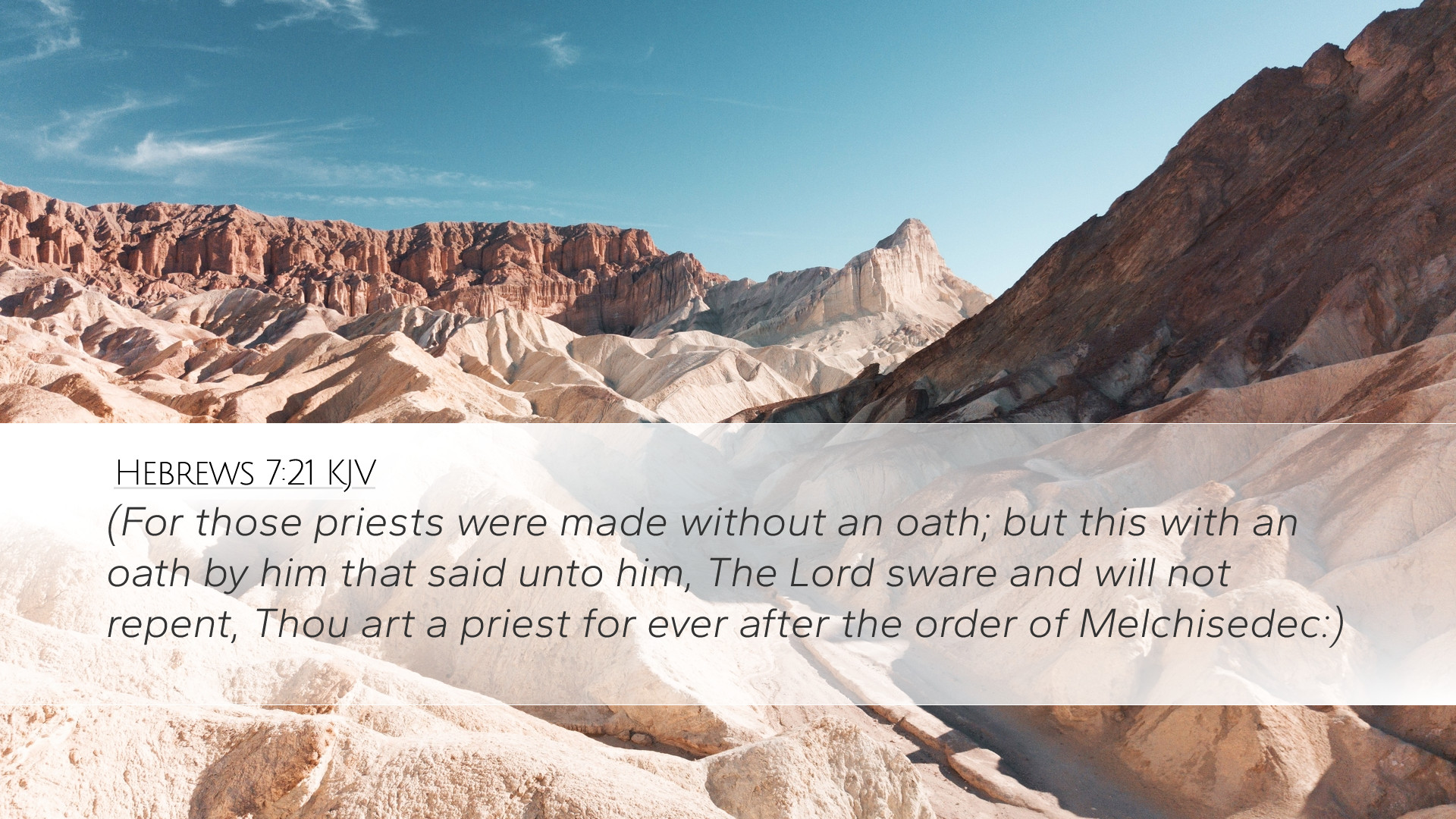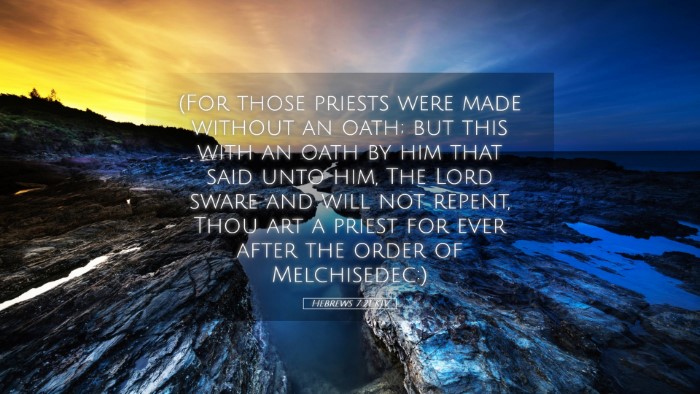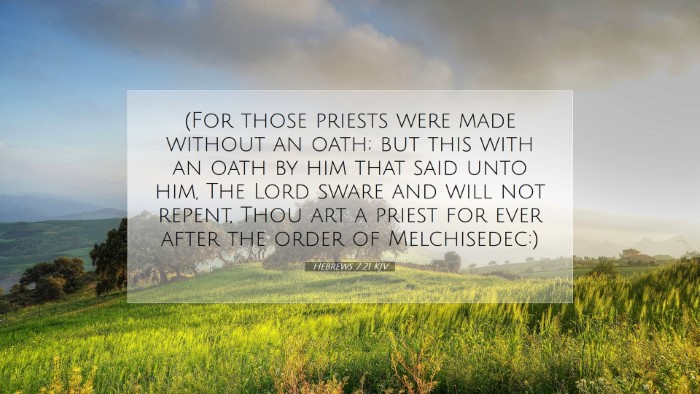Commentary on Hebrews 7:21
Verse Analysis: Hebrews 7:21 states, "for those priests were made without an oath; but this with an oath by him that said unto him, The Lord swore and will not repent, Thou art a priest forever after the order of Melchisedec." This verse directly contrasts the Levitical priesthood, which was established without an oath, with the priesthood of Christ, which was confirmed by God’s own oath.
Understanding the Context
The context of Hebrews is crucial for proper interpretation. The author of Hebrews addresses Jewish believers who are contemplating a return to Judaism and the sacrificial system. They must understand the superiority of Christ’s priesthood compared to the Levitical priesthood.
Insights from Commentaries
Matthew Henry’s Commentary
Matthew Henry emphasizes the importance of the priesthood in the context of redemption. He highlights that the Levitical priests served under the law and their ministry was repetitive and provisional. In contrast, Christ's priesthood is characterized by its permanence and effectiveness. Henry notes that God's oath underlines the seriousness and unchangeable nature of Christ's role as our eternal priest.
- The priesthood of Christ is superior: Unlike Aaron and his descendants, who served without an oath, Christ's priesthood has divine endorsement.
- The shift from temporary to eternal: Henry argues that the Levitical system was temporary; thus, it was necessary for a new order to arise, facilitating a more profound and lasting access to God.
Albert Barnes’ Commentary
Albert Barnes comments on the significance of God's oath, noting that the priesthood of Christ following the order of Melchisedec represents a higher and more authoritative claim than that of the Levitical priests. He argues that God's declaration provides an assurance that the priestly office held by Christ is eternal and unchangeable.
- Significance of Melchisedec: Barnes explains that Melchisedec serves as a type of Christ, representing a priesthood that is independent of lineage and thus pointing to the universal nature of Christ's atonement.
- Emphasis on God's unchanging nature: Barnes stresses that the phrase "will not repent" indicates God’s steadfast purpose, which guarantees the efficacy of Christ’s priesthood.
Adam Clarke’s Commentary
Adam Clarke provides an exposition on the role of oaths in the ancient Jewish context. He draws attention to the significance of oaths in confirming God’s promises, especially regarding priestly duties. Clarke posits that the declaration of Jesus as a priest by divine oath is essential for understanding the legitimacy and authority of His ministry.
- Contrast between oaths: Clarke underlines the contrast between the priests of Levi, who operated without oath, and Christ, whose ministry is sanctioned by divine declaration.
- The eternal nature of Christ's priesthood: He further elucidates that Christ's designation as “a priest forever” emphasizes the eternal intercession of Christ on behalf of humanity.
Theological Implications
This verse presents profound theological implications for understanding the role of Christ as the High Priest. It invites theologians and scholars to explore themes like:
- Christ’s Mediatorial Role: As the High Priest, Christ serves as the mediator between God and humanity, fulfilling the requirements of both the divine and human natures.
- The Permanence of Salvation: The assurance of eternal salvation is derived from Christ's priesthood, highlighting the concept of once-for-all atonement.
- The Nature of the New Covenant: This verse reflects the transition from the Old Covenant—characterized by the law and temporary sacrifices—to the New Covenant, anchored in the sacrifice of Jesus.
The Practical Application for Believers
Understanding Hebrews 7:21 equips pastors and believers with a robust faith foundation. Here are some practical implications:
- Encouragement in Prayer: Knowing that Christ intercedes for believers provides a profound encouragement in prayer, ensuring confidence that their requests reach God.
- Understanding the Assurance of Salvation: The permanence of Christ’s priesthood reassures believers of their standing before God.
- Faithfulness in Ministry: Pastors and leaders are encouraged to model their service on the sacrificial love that Christ demonstrated as the eternal High Priest.
Conclusion
Hebrews 7:21 encapsulates the transition from a temporary, flawed priesthood to an eternal, perfect one in Christ. Insights from the aforementioned commentaries shed light on the gravity of this transition and its implications for both theology and practice within the Christian faith. Understanding these nuances enriches the believer’s faith and equips them to engage meaningfully with the text.


